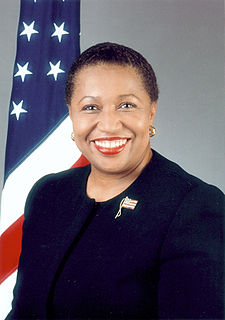A Quote by Carol Moseley Braun
The Islamic community today is faced with a new version of an old struggle. My late mother used to say it doesn't matter whether you came to this country on the Mayflower or on a slave ship, through Ellis Island or the Rio Grande. We're all in the same boat now.
Related Quotes
Whether our ancestors came here on the Mayflower, on slave ships, whether they came to Ellis Island or LAX in Los Angeles, whether they came yesterday or walked this land a thousand years ago our great challenge for the 21st century is to find a way to be One America. We can meet all the other challenges if we can go forward as One America.
Now then, Pooh," said Christopher Robin, "where's your boat?" "I ought to say," explained Pooh as they walked down to the shore of the island, "that it isn't just an ordinary sort of boat. Sometimes it's a Boat, and sometimes it's more of an Accident. It all depends." "Depends on what?" "On whether I'm on the top of it or underneath it.
We are now faced with the fact, my friends, that tomorrow is today. We are confronted with the fierce urgency of now. In this unfolding conundrum of life and history, there is such a thing as being too late. Procrastination is still the thief of time. Life often leaves us standing bare, naked, and dejected with a lost opportunity. . . . Over the bleached bones and jumbled residues of numerous civilizations are written the pathetic words, 'Too late.' ... Now let us begin. Now let us rededicate ourselves to the long and bitter, but beautiful, struggle for a new world.
I don't know that I would have the courage to come over to a new country where the religion is different, the language is different, where I don't have any money. The thought of starting over like that in the way that many refugee families have to start all over again - that's an incredible thing to think about. One of the things I tell about Refugee is that unless you're Native American or a descendant of slaves, your family immigrated to this country - whether they came over on the Mayflower or whether they came over on a raft last year.
When they got here, when they successfully emigrated - and not everybody that came through Ellis Island was accepted. If you were sick you were not allowed in. If you had any kind of a disease, we were in the process of trying to wipe out all these diseases. We did that by keeping people who had them out of the country. You might look at it today as, "Wow, that was really mean." No. It was putting America first. It was putting the American people first, and it was a realization that we can't take everybody.
































